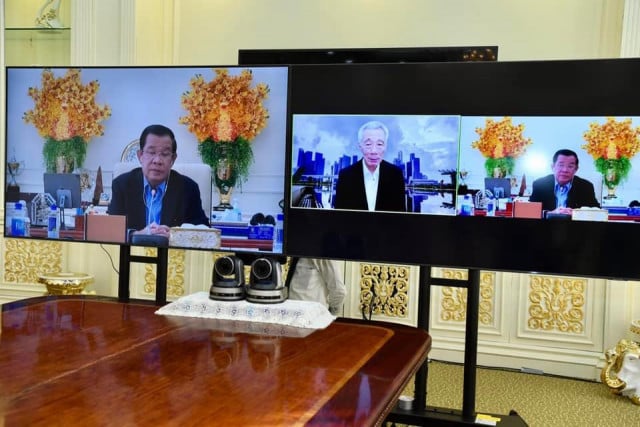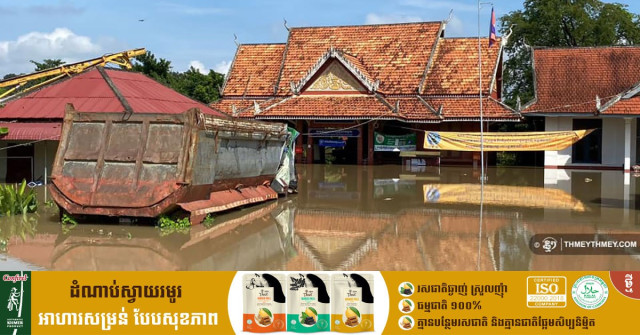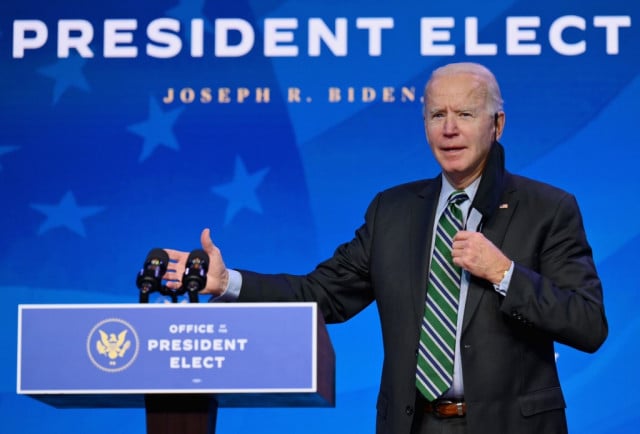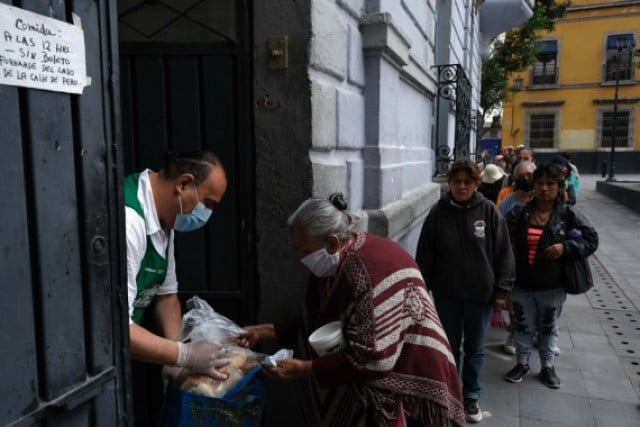Cambodia and Singapore Agree on ASEAN Foreign Ministers Discussing Chair’s Proposals on Myanmar Crisis

- By Meng Seavmey
- January 15, 2022 8:41 PM
However, Singapore points out that progress must be made in the delivery of humanitarian assistance to that country and involve all parties concerned
PHNOM PENH--Singapore and Cambodia have agreed to have the Association of Southeast Asian Nations (ASEAN) foreign ministers discuss proposals suggested by Cambodia as the current chair of the group to help Myanmar resolve its crisis.
The agreement was reached on Jan. 14 during a virtual meeting between Prime Minister Hun Sen and his Singaporean counterpart Lee Hsien Loong, according to a statement on Hun Sen’s Facebook page.
“The two leaders also exchanged views and shared ideas on seeking solutions to Myanmar’s crisis,” the statement read. “PM Lee Hsien Loong agreed with PM Hun Sen that the next step is allowing ASEAN Foreign Ministers to hold a meeting and continue the work, especially on ASEAN chair’s special envoy to Myanmar, to help resolve the crisis in Myanmar,” the statement read.
According to the same statement, Hun Sen informed Lee of the purpose of his visiting Myanmar, which was to have a private negotiation with Myanmar junta’s leader, General Min Aung Hlaing.
Cambodia being chair of ASEAN in 2022, his visit was to help resolve Myanmar’s crisis and especially to ensure ceasefire, end the violence and deliver humanitarian assistance, Hun Sen told his Singaporean counterpart.
Lee thanked Hun Sen for clarifying the purpose of his visit to Myanmar as well as for his determination to resolve this country’s crisis, adding that he supported Cambodia’s efforts as ASEAN’s chair, including his appointing an ASEAN chair’s special envoy, the statement said.
The Cambodian prime minister paid a two-day official visit to Myanmar on Jan. 7, becoming the first foreign leader to meet with Myanmar's Tatmadaw leader since the Feb. 1, 2021, coup during which Myanmar’s Tatmadaw—the armed forces’ official name—seized power in the country following the National League of Democracy winning the national elections in November 2020.
Hun Sen’s meeting with the Myanmar junta chief has led to securing an extension of ceasefires with other armed groups, humanitarian aid delivery as well as pledges from the military to assist him the special envoy in implementing the five-point consensus.
According to a separate statement issued by Singapore’s Foreign Ministry regarding the conversation between the two leaders, Lee also mentioned to Hun Sen that there had not been any significant progress in the implementation of ASEAN’s Five-Point Consensus.
“Prime Minister Lee expressed his view that, until there was significant progress in implementing the Five-Point Consensus, ASEAN should maintain its decision reached at the 38th and 39th ASEAN Summits of inviting a non-political representative from Myanmar to ASEAN meetings,” the statement read.
Lee went on to stress the need for the ASEAN Chair to engage all parties concerned, including the Tatmadaw and the National League for Democracy, as well as the need for progress in the delivery of humanitarian assistance with the involvement of the ASEAN Coordinating Centre for Humanitarian Assistance on disaster management and with the cooperation of the Tatmadaw.
Lee also said that he remained unsure about the role ASEAN or the ASEAN Chair’s special envoy to Myanmar in coordinating a ceasefire since ASEAN did not even have access to all parties in Myanmar.
“However, Singapore had no in-principle objections to such a mechanism if it could foster an end to violence,” the statement read.
The Singaporean prime minister also told his Cambodian counterpart that he was hopeful that the current ASEAN chair Cambodia would take his views and views of other ASEAN leaders into consideration, reaffirming Singapore’s commitment to work with Cambodia and other ASEAN Member States to fully implement the Five-Point Consensus and relevant decisions made by the regional grouping, the statement said.















